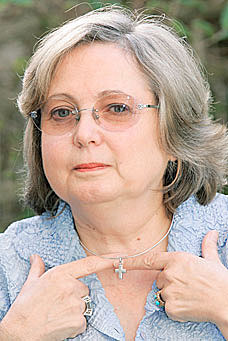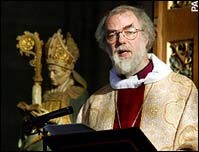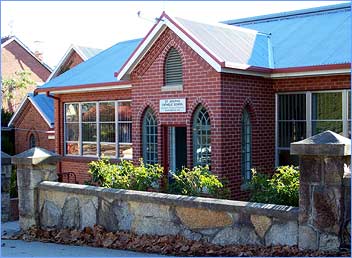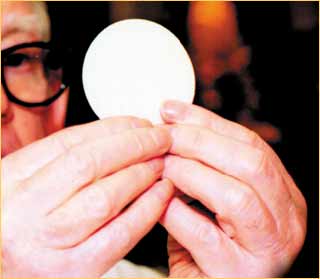
One of the problems we Christians have is that we are invisible; no-one knows we are part of society and therefore it is so easy for secularists to simply discount us. Although Christians who practice every Sunday form only 5% of the population, great swathes of the population claim to actually be Christian.
Willie Walsh, the BA chief executive, said criticism of BA as being anti-Christian had been misplaced and unjustified. I am sure he is right and the truth of the matter is that BA just forgot they had Christians working for them, or thought that crosses were nothing other than jewellery. I am sure it is a case of “out of sight, out of mind”. The post-Christian society myth lives.
Society in general tends to dismiss Christians, I heard one comedian on the wireless said, “If you insult a Christian the worst they are likely to do is ban you from a jumble sale.” It is our nature to turn the other cheek. It was only the rabidly militant that protest over something like Gerry Springer: The Opera’s rather horrid portrayal of Jesus as a spoilt homosexual, or pictures of crucifixes in urine; we have got used to insults and being the butt of jokes. Yet Christians, Catholics especially, were so active in the “Drop the Debt” campaign and they were listened to. Bishops and priests gave a clear lead and people took to the streets. The letters to MPs over our schools taking 25% of non-Catholics did change the Minister’s mind.
Political issues are one thing, it is the person and action of Christ we need to make visible.
Maybe, just maybe if we were a little more visible we might begin to be seen as having a place in society and not just us but the Lord himself. Brighton is full of Coptic Christians, many have the cross tattooed on their hands, obviously they are Christian. They are not afraid to have icons and crucifixes up in there shops or even to name them after saints, many of Brighton’s taxi drivers are Coptic, they have crosses or images of the Mother of God in their cars.
An easy form of evangelisation is to wear a Christian symbol, if you are bad it will be seen as a fashion accessory, if you are kind people might just connect your actions with the symbol.
As a child I remember seeing nuns in the street in habits and priests from the local Catholic school in cassocks, even as a three or four year old it had an impact on me. It is interesting congregation of nun’s with habits tend to grow and those with a medallion or broach are dying out.
On the rare occasions I wear a cassock in the street, rather than just a piece of plastic in what a rather reactionary parishioner describes as the “waiters ubiquitous black shirt”, I tend to behave differently, I am not as shy as I normally am, I am more inclined to talk to people. The reaction of people to me is strange. Muslims look horrified and give me a wide berth. People who live on the street come up and want to chat, not to beg but to talk, often about faith. Slavs, Poles come up and ask if I am really a Catholic priest and ask about Mass times, the location of the Church and so forth, and I subsequently see them at Mass. If I am in a queue or waiting for a bus then other people find an excuse to talk, often about their spiritual lives, quite frequently, if they are Catholics about how they can return to the Church. I know habited nuns who have the same experience.
I was allowed to try my vocation as monk for a while, I had to make a long train journey, the only clothes I had were my habit, someone who had been lapsed for years, thirty or forty, started to talk me about confession, if the train was less crowded I would have heard her confession and presumably brought her back.
Maybe you should wear a cross and I ought to wear cassock on the streets, this is something to my shame, the reason I don’t is the reaction of my fellow priests.















